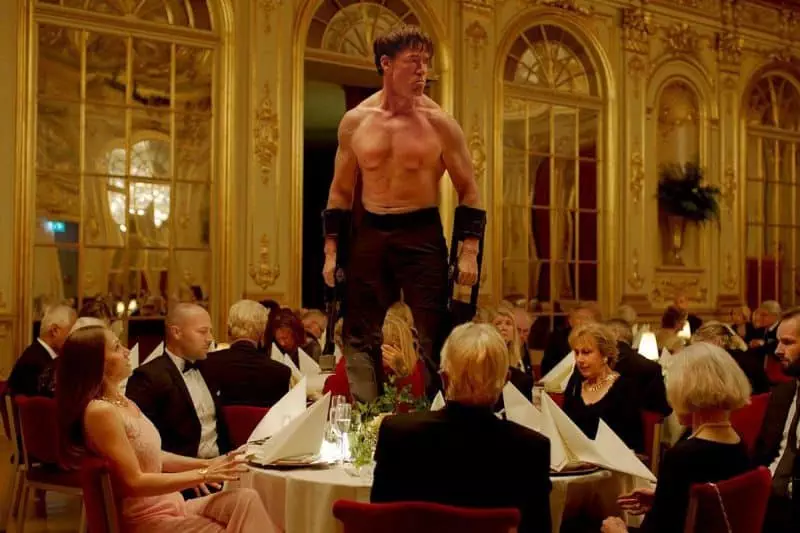
“The Square is a sanctuary of trust and caring. Within it we all share equal rights and obligations.” It is a conversation worth having, but last night’s opener for LIFF31, The Square, is a bit of a round peg in a square hole, says NEIL MUDD.
Satire sometimes leaves a bitter taste in the mouth and so it proves with Ruben Östlund’s take down of the contemporary art world, The Square. Chosen by Leeds International Film Festival to launch its impressive programme this year, The Square seemed like a good bet.
An unexpected recipient of the Palme d’Or at Cannes, its casting is pitch-perfect and the whole thing is exquisitely shot by Östlund’s regular cinematographer Fredrik Wenzel. If these were the only measures of the film’s worth, The Square would rightly be a masterpiece, but it is too meandering and tonally inconsistent, a sledge-hammer to crack a walnut. At over two hours it is far too long, having said all it needed way before the credits finally roll. Ironically, it ends up by being as wholly pleased with itself as the very thing it sets out to ridicule.
There are some pleasing moments, for example its echoes of Playtime, Jacques Tati’s ill-received satire on modern living – workers impassively wreck an old statue while installing the titular Square, a bored attendant redirects tourists away from the gallery, a cleaner accidentally sweeps up an art exhibit – though it is perhaps stretching a point to suggest that Claes Bang’s brilliantly oily curator, Christian, is Monsieur Hulot with a tailoring allowance. As its moral centre, Christian is as woefully unfit as the father who neglects his children to save his smartphone from an avalanche in Östlund’s previous film, Force Majeure.
Here too, a phone proves the catalyst for a series of increasingly desperate acts and phones in general become something of a recurring motif, symbolic of a society in the grip of an addiction: in Östlund’s film, phones disconnect characters from one another, betray them at their most vulnerable, act as father confessor in a Godless world. There is nothing revolutionary or new in this, however. Charlie Brooker has been saying it for years, and arguably much better, in Black Mirror.
It is difficult to pinpoint what is more frustrating about The Square: that it relies on a trajectory of increasingly obvious set-pieces to shock – the ‘celebrated’ wild animal gala banquet scene long outstays its welcome – or that Christian learns absolutely nothing from it all, turning an apology into a rambling pseudo-intellectual diatribe about society. The curator’s undoing – an ill-considered YouTube clip of an exploding blonde beggar child and her kitten which goes viral – and his subsequent inquisition by press conference is just more liberal bear baiting.
While the malign establishment hypocrisies of the bourgeois press cannot be stated enough, it is questionable who the viewer is being invited to side with. For Östlund, arguments about freedom of speech are merely self-serving. It is an earlier question about whether art can speak for the voiceless and downtrodden in society which is tellingly left unanswered.
Only a wonderfully staged scene depicting an artist conversation disrupted by a man with Tourette’s manages to hit its target cleanly. Audience members remonstrate with the man and his wife, increasing the tension in the situation and fuelling an escalation in the profane nature of his outbursts. Eventually, a psychiatrist interjects and chastises the crowd for its lack of understanding and tolerance. The laughter catches in the throat.
In the end it is this imperviousness to others that lingers most in the memory – Elizabeth Moss’s bonobo chimpanzee roomate is as pointedly ignored and as perpendicular to the plot as the beggars and migrants which occasionally punctuate the narrative – and it these peripheral characters that come off with dignity intact in Östlund’s film. Perhaps that is what he intended?
The 31st Leeds International Film Festival runs citywide between 1st – 16th November. Details here.